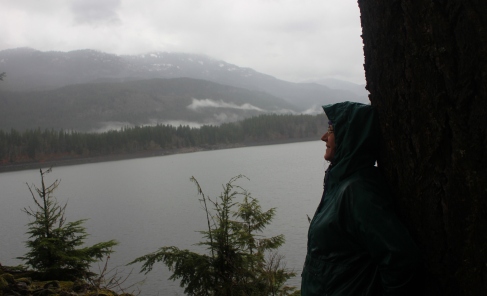We can all attest to feeling it on some level – that moment when we leave our personal problems behind as we step into the warm embrace of nature, whether it be a green, mossy grove or a rocky mountain peak. And now there’s an emerging science devoted to promoting healing ourselves through nature.
According to American pastoral counselor Howard Clinebell – a pioneer of the ecotherapy movement – this therapy, in a nutshell, refers to a diversity of nature-based methods of healing.
Ecotherapy takes into account the latest scientific understandings of the world and the deepest indigenous wisdom.
“This perspective reveals the critical fact that people are intimately connected with, embedded in, and inseparable from the rest of nature. Grasping this fact deeply shifts our understanding of how to heal the human psyche and the currently dysfunctional and even lethal human-nature relationship. It becomes clear that what happens to nature for good or ill impacts people and vice versa, leading to the development of new methods of individual and community psychotherapeutic diagnosis and treatment.”
Dr. Michael Cohen is another such pioneer. A distinguished eco-psychologist and environmental scientist residing in Washington State, he has dedicated his sixty-year career to researching and teaching natural attraction ecology.
The Webstring natural attraction model he has developed recognizes humans as being part of the eons-old dance of the web of life – each member of the web, whether it be a bacteria or a human, has its own unique relationship to the whole.
“Industrialized society socializes us from childhood into a nature-disconnected story that excessively exploits nature’s balanced essence, even as that ancient energy dances in, through and around us,” Dr. Cohen explains. “The root of the problem is that we deny we have been indoctrinated into this story – this keeps us tied to exploitative patterns of thought and behaviour that perpetuates the industrial myth.”
The end result of living the industrial myth is obvious – we are out of touch with our natural way of knowing and with our inherent sensitivity to the natural world. And it’s not just the environment that is deteriorating; our personal and social well-being degrades alongside it.
John Scull knows the answer to why ecotherapy works. After all, he worked as a registered psychologist for 35 years, and practiced ecotherapy for the last four years of his career, he tells me during a phone interview from his home in Duncan on Vancouver Island.
Scull studied under Dr. Cohen, who spoke about the powerful sensory and nature reconnecting processes that enables us to restore wellness to our nature-disconnected psyches.
“It’s more than just walking in nature,” Scull said. “Anybody can go outdoors, but that’s not therapy. You’ve got to be outdoors and mindful of your connection to nature and that’s what ecotherapy is all about. Going out and really processing the lessons that nature has to teach us about how to live our lives and how to be in the world.”
This is a three stage process, he explained.
Part one is to give yourself an intention before you go out in nature, part two is to be quiet when you’re there, and part three is to process the experience and bring it back into your life, done with a therapist and also with journalling.
One of the exercises, out of the hundreds used, involves going out and breathing in a plant. Yes, it sounds odd, he says, but what it means is to go out and find a plant, and hold the image in your mind of how the plant is producing oxygen and how you’re producing carbon dioxide and meditate on that connection while you’re breathing and then hold your breath too.
“It’s a really good way to get people into the notion of inter-connectedness,” he said, “that they’re not alone, that they have a reciprocal, interactive relationship with the natural world, that without plants we wouldn’t be able to breathe and without carbon dioxide, plants wouldn’t be able to breathe.
“There’s a lot we learn from interacting with the natural world. We learn about things that are permanent, we learn about things that are interconnected – the idea is to learn to live our life in more harmony with the way nature works. The only way you get that is by experiencing it mindfully.”
He points to a growing body of scientific literature about the positive effects of ecotherapy and concedes that ecotherapy is part of a larger movement which is marching forward.
It could be the crystal ball into the future
Seeing as we evidently survived the end of the world predicted by the Mayans on December 21, what lies ahead for our society of self-created eco-zombies?
American author and journalist Richard Louv makes a convincing case that through a nature-balanced existence – driven by sound economic, social, and environmental solutions – the human race can and will thrive.
“The future will belong to the nature-smart – those individuals, families, businesses and political leaders who develop a deeper understanding of the transformative power of the natural world and who balance the virtual with the real. The more high-tech we become, the more nature we need,” he says.
Our society, Louv states, has developed such an over-sized faith in technology that we have yet to fully realize how human capacities are enhanced through the power of nature. Tapping into the restorative powers of the natural world can boost mental acuity and creativity; promote health; build smarter and more sustainable communities, and economies; and ultimately strengthen human bonds. As he describes in his book, The Nature Principle, “we are entering the most creative period in history. The twenty-first century will be the century of human restoration in the natural world.”
(Published January 18, 2013 in Greenster, environmental online magazine)


